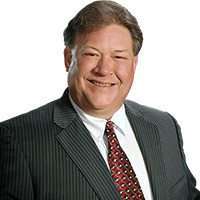Haughton Juvenile Law Lawyer, Louisiana
Sponsored Law Firm
-
 x
x

Click For More Info:
-
John D & Eric G Johnson Law Firm, LLC
415 Main St Minden, LA 71055» view mapCriminal Defense and Accident & Injury Fighting for You When You Need It the Most
At the John D. & Eric G. Johnson Law Firm, LLC, attorney Eric Johnson is renowned for his handling of cases throughout Minden and north Louisiana.
800-768-5820
Not enough matches for Haughton Juvenile Law lawyer.
Below are all Haughton Criminal lawyers.
Mark Daniel Frederick
✓ VERIFIEDMark D. Frederick has over 20 years of legal experience, enabling him to handle the demands of your case regardless of the complexities involved. As y... (more)
Thomas A. Bordelon
✓ VERIFIEDTHOMAS A. BORDELON was born in San Antonio, Texas on December 6, 1959. Mr. Bordelon graduated cum laude from Louisiana State University at Shreveport... (more)
Eric Gerard Johnson
✓ VERIFIEDAt the John D. & Eric G. Johnson Law Firm, LLC, attorney Eric Johnson is renowned for his handling of criminal cases throughout Minden and north Louis... (more)
J. Dhu Thompson
✓ VERIFIEDDhu Thompson is a criminal defense, family law, and catastrophic injury lawyer in Louisiana. After graduating from Southern University Law School in 2... (more)
J Ransdell Keene
✓ VERIFIEDPracticing law for more than 40 years, J. Ransdell Keene is a trusted legal ally for clients throughout the Shreveport area and across Louisiana. As a... (more)
 Eric Johnson Minden, LA
Eric Johnson Minden, LA Practice AreasExpertise
Practice AreasExpertise





